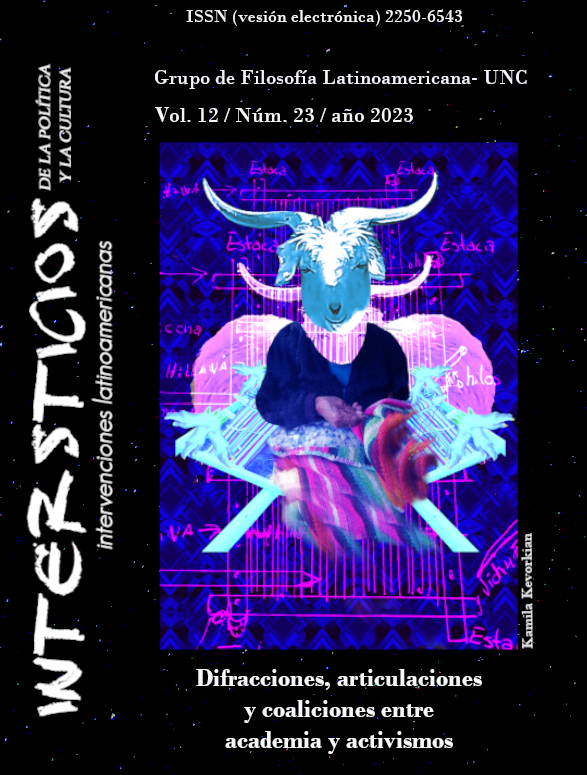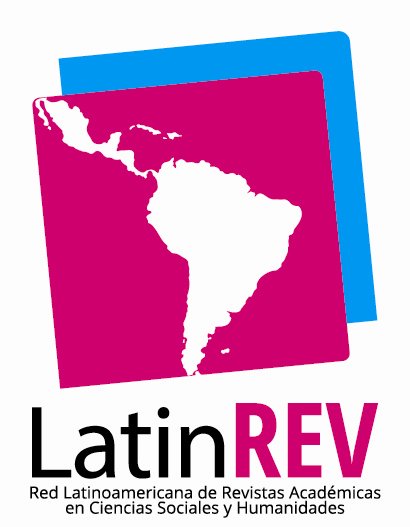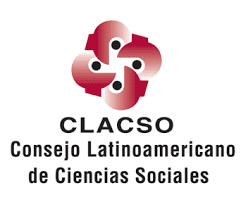Feminist Anarchives: Itineraries from the Institutional Fund Alieda Verhoeven
Keywords:
Archival Turn, South Feminisms, Anarchival PracticesAbstract
What does a material subversion of records imply in an institutional archive? How do the flows of becoming-with flow between the interference to the canonical linearity of the archive and the modes of life it propitiates? How does the co-implication of material alliances between archival bodies, recording and archiving bodies, militant bodies, and the bodies we investigate, de-archive, discourse?
In resonance with these questions, this body of text embraces the notion of anarchiving from a feminist perspective as opposed to the canonical and reproductive conception of archiving as a biocolonial technology. In a situated manner, it takes as a field of deployment the Alieda Verhoeven Institutional Fund, belonging to the militant, pedagogical and affective practices of the Ecumenical Women's Group, organized, systematized and safeguarded from its creation in 1970 until its dissolution in 2010 by Alieda Verhoeven and her partner Lynn Fisher, to think of it as a feminist anarchive in order to nurture other documentary practices for living on a damaged planet.
Downloads
References
Acebal, Martín. (en prensa). Las singularidades del archivo, deSignis, 38, Archivo y memoria.
Castillo, Alejandra y Gómez Moya, Cristian (2012). Arte, archivo y tecnología. U. Finis Terrae.
Chadwick, Whitney (2000). Historiography/Feminisms/Strategies. Paradoxa, (12), 10-12.
Citron, Michelle (2020) ¿Qué está mal en esta imagen? Traducción libre de Azul Aisenberg. Ver y poder.
Cvetkovich, Ann (2018) Un archivo de sentimientos. Trauma, sexualidad y culturas públicas lesbianas. Barcelona, Bellaterra.
Derrida, Jacques (1997) Mal de archivo. Una impresión freudiana. Trotta.
Ernst, Wolfgang (2018) El archivo como metáfora. Del espacio de archivo al tiempo de archivo. Nimio.
Foucault, Michel (2013) La arqueología del saber. Siglo XXI.
Giunta, Andrea (2010) Archivos. Políticas de conocimiento en el arte de América Latina. Errata.
Haraway, Donna (2019) Seguir con el problema. Generar parentesco en el Chtuluceno. Bilbao: consonni.
Penhos, Marta (2013). Las imágenes de frente y de perfil, la “verdad” y la memoria. De los grabados del Beagle (1839) y la fotografía antropológica (finales del siglo xix) a las fotos de identificación en nuestros días. Memoria y sociedad, 17(35), 17-36.
Rufer, Mario (2016). El archivo: de la metáfora extractiva a la ruptura poscolonial. En: (In)disciplinar la investigación: archivo, trabajo de campo y escritura (pp. 160-186). Siglo XXI Editores.
Tello, Maximiliano (2018) Anarchivismo: tecnologías políticas del archivo. La Cebra.
Velasco Sánchez, Susana (2014). Cabañas, cámaras y trincheras: figuras epocales que problematizan la cabaña primitiva: la sensibilizan, la vuelven política y la hacen devenir territorio. International Conference Arquitectonics Network: Architecture, Education and Society,
Barcelona, 4-6. Politècnica de Catalunya. Recuperado de: http://hdl.handle.net/2117/115225
Zielinski, Siegfried (2015) 'AnArcheology for AnArchives: Why Do We Need—Especially for the Arts—A Complementary Concept to the Archive?'. Journal of Contemporary Archaeology, 116-125.
Downloads
Published
How to Cite
Issue
Section
License

This work is licensed under a Creative Commons Attribution-NonCommercial-ShareAlike 4.0 International License.
Authors who have publications with this journal agree to the following terms:
a. Authors will retain their copyright and grant the journal the right of first publication of their work, which will simultaneously be subject to the Creative Commons Attribution License that allows third parties to share the work as long as its author and first publication in this journal are indicated.
b. Authors may adopt other non-exclusive license agreements for distribution of the published version of the work (e.g., deposit it in an institutional telematic archive or publish it in a monographic volume) as long as the initial publication in this journal is indicated.
c. Authors are allowed and encouraged to disseminate their work through the Internet (e.g., in institutional telematic archives or on their web page) after the publication process, which may produce interesting exchanges and increase citations of the published work (see The effect of open access).










